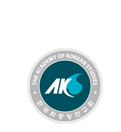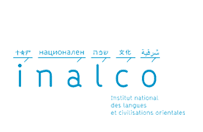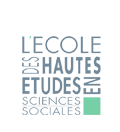Appel à communications
Colloque international
« Le corps dans les littératures modernes d’Asie »
Paris, 2 et 3 novembre 2017
(date prévisionnelle)
Organisé par Gérard Siary (U. Montpellier), Toshio Takemoto (U. Lille 3),
Victor Vuilleumier (U. Paris 7) et Yinde Zhang (U. Paris 3)
Avec le soutien du Centre de recherche sur les civilisations de l’Asie orientale (CRCAO, Paris 7/EHESS/ CNRS/Collège de France) et du Centre d’Études et de Recherches Comparatistes (CERC, Paris 3)
Les thématiques du corps occupent une place centrale dans les littératures d’Asie orientale depuis la fin du 19ème siècle à aujourd’hui. Les différentes constructions et déconstructions de l’image et des représentations du corps y marquent l’expérience littéraire de la modernité, des traditions propres, de la rencontre avec l’Autre occidental, et de ses discours sur le corps.
Ces représentations du corps et leurs usages dans les littératures modernes d’Asie interrogent et redéfinissent les identités culturelles, genrées, individuelles et collectives, globales et locales. Elles ne se décodent pas seulement comme le signe de ces négociations identitaires, mais renvoient aussi à l’émergence de nouvelles esthétiques du corps, ainsi qu’aux expérimentations créatrices sur l’écriture et la langue.
Nous approcherons ici en particulier les littératures de l’Asie orientale dans une perspective croisée, à partir des interrogations suivantes : quels corps les littératures modernes d’Asie cherchent-elles à dire, et comment ? De quoi ces corps littéraires sont-ils l’image et le signe ? Comment se déploient ces discours littéraires et comment se distinguent-ils des paradigmes occidentaux qu’ils ont parallèlement contribué à importer et traduire ?
Les approches interrogeront l’écriture du corps dans son efficacité littéraire et la représentation du corps sous l’angle de la « fonction littéraire », mais aussi porteront sur le corps dans d’autres formes d’expression et dans leur interaction avec la littérature. On explorera l’hypothèse de régimes spécifiques de représentation, liés aux cultures de l’Asie orientale, notamment la notion d’indistinction du sujet et de l’objet, qui induit une autre relation à la nature, mais qui est à l’épreuve de la modernité, de l’intermédialité, du croisement avec les cultures mondiales et régionales.
Les propositions d’intervention pourront s’inscrire dans l’un des axes suivants, qui ne sont pas exclusifs :
1) Corps national et corps colonial
2) Corps souffrant / corps subi
3) Corps aimant / corps aimé
4) Corps mangeant / corps mangé
5) Corps médical / corps médicalisé
6) Corps substitut / corps joué
7) Corps parlant / corps dit
Le résumé de la proposition, de 1000 mots maximum, indiquant l’axe principal et contenant une brève biographie et bibliographie de l’auteur, est à envoyer avant le 25 mars 2017 aux quatre adresses suivantes :
gerardsiary@gmail.com, toshio.takemoto@gmail.com, victorvuilleumier@gmail.com, zhangyinde8@gmail.com.
Les propositions seront examinées et les réponses envoyées en avril 2017.
Annonce (PDF)












